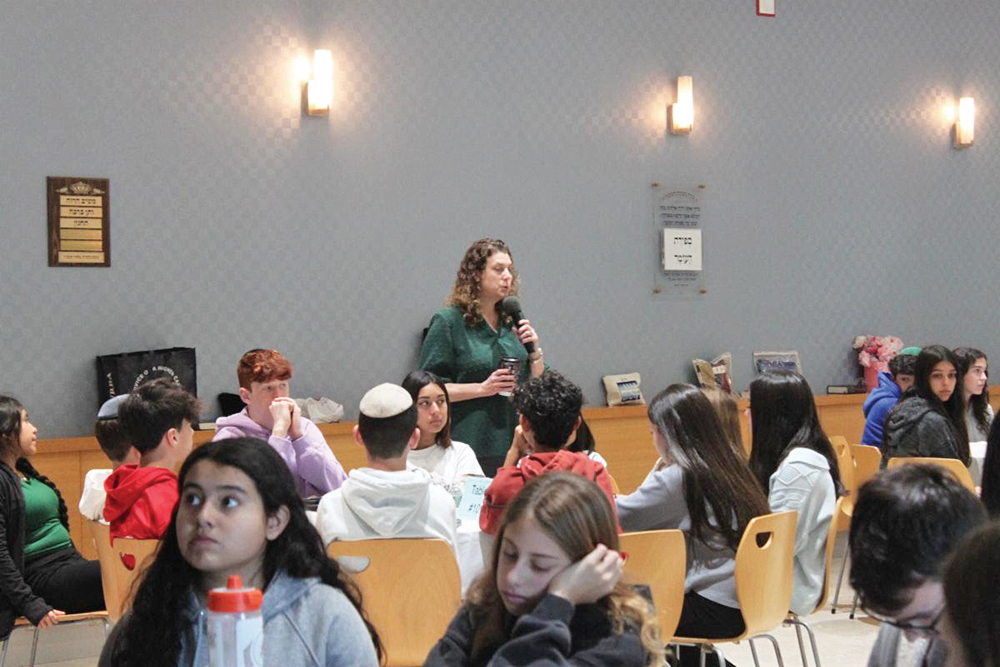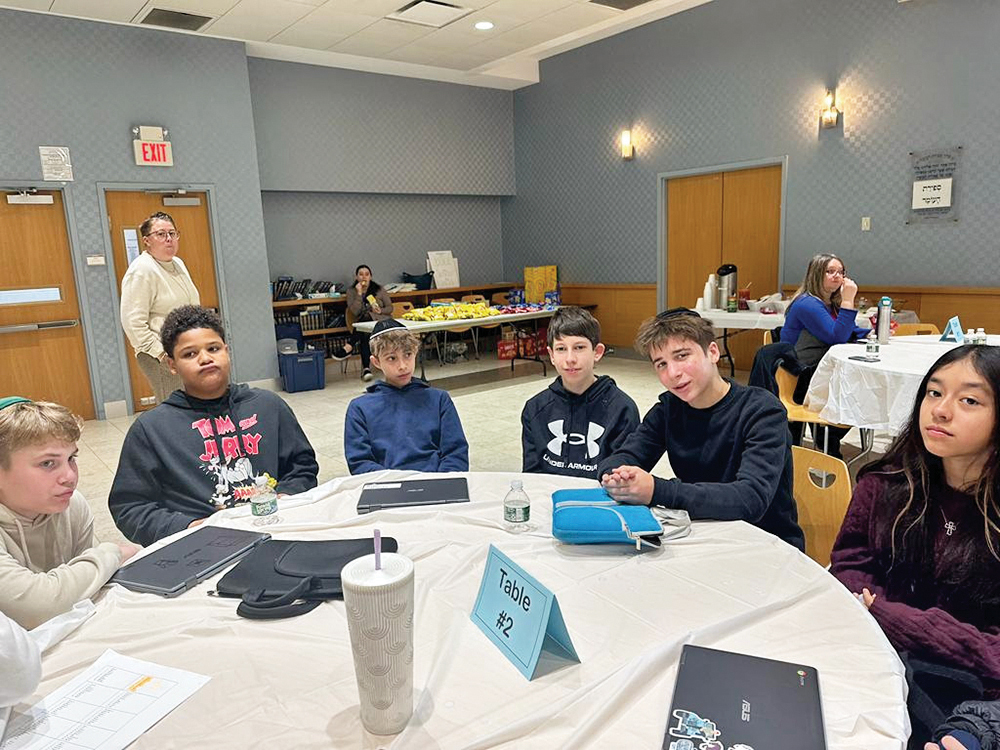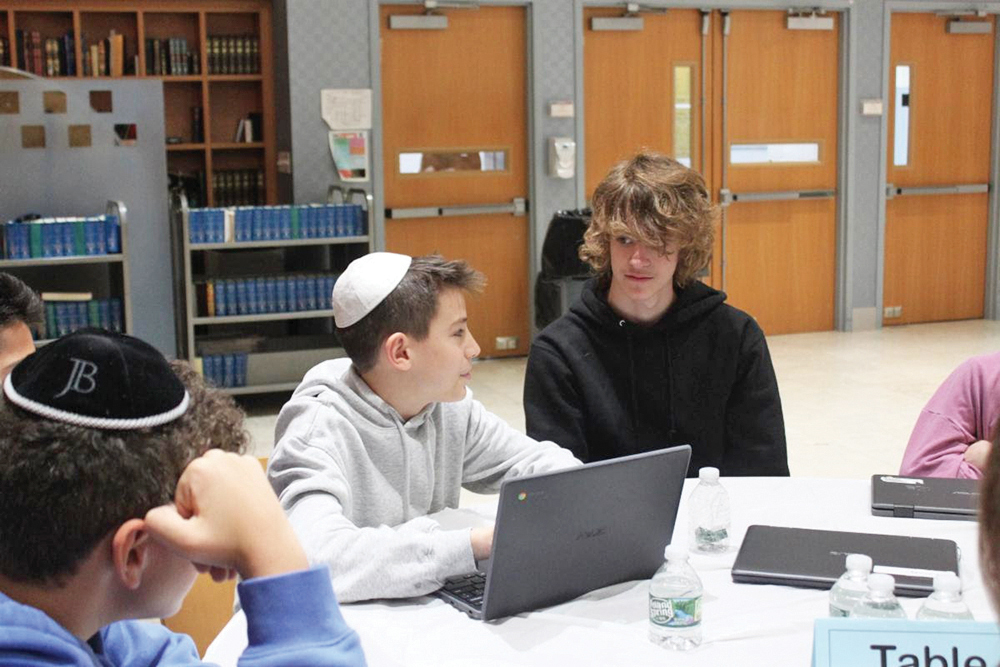
To properly highlight and commemorate the injustices of Kristallnacht, and to connect those events to modern acts of antisemitism, Moriah eighth grade students paired with students from the Walter T. Bergen Middle School for a collaborative learning experience with Mrs. Schwartz. This is the second year that Bergen Middle School students have visited Moriah to study the lessons of Kristallnacht, but the current political environment added a sense of urgency to this year’s encounter. One goal was to empower the students to be part of the change to end hate.
Students unpacked concepts relating to stereotypes, scapegoating, current antisemitism, propaganda, hate-speech and government sanctioned violence. Following an ice-breaker when the students identified the many interests that they have in common, the two-part workshop moved to a conversation about the causes of events. No event in history comes about without steps that led up to it. Therefore, by design, Mrs. Schwartz discussed and analyzed the roots of antisemitism with the students. She discussed the power of words and propaganda. Then, once they analyzed the causes, the students shifted to the second workshop centered around Kristallnacht—a government sanctioned pogrom—and the political and economic forces at work in Germany that allowed the pogrom to happen. In addition, students were challenged to view photos of the destruction and think about the role of the bystanders. Questions like, “Where was the average German citizen and why didn’t he try to stop this?” and “How does a civilized government sanction this type of violence?” were discussed too.

Hindy Segal noted: “This program was meaningful and I enjoyed making some new friends.” Zeke Orbach stated: “It was really nice to talk to them and make a Kiddush Hashem and to show them we are human and have feelings.” Gabriel Lifschitz stated: “It was an important program because we need to be the ones to educate others. We, along with the other students, will be on college campuses one day and people need to know the truth about antisemitism.” Students recognized that the Holocaust was the effect of deep-rooted Nazi antisemitism. This learning experience promoted ideas of cooperation and unity during this difficult time period.











